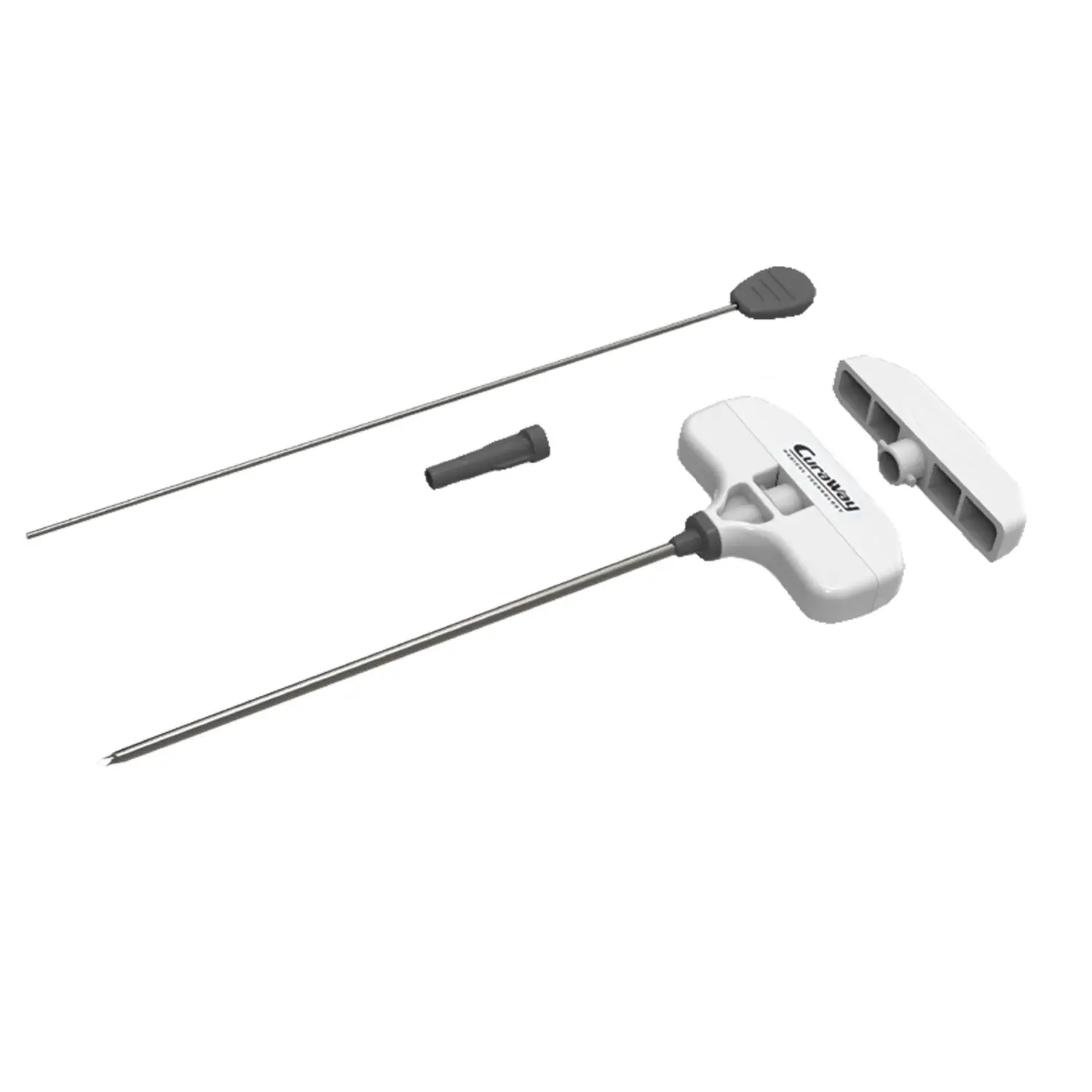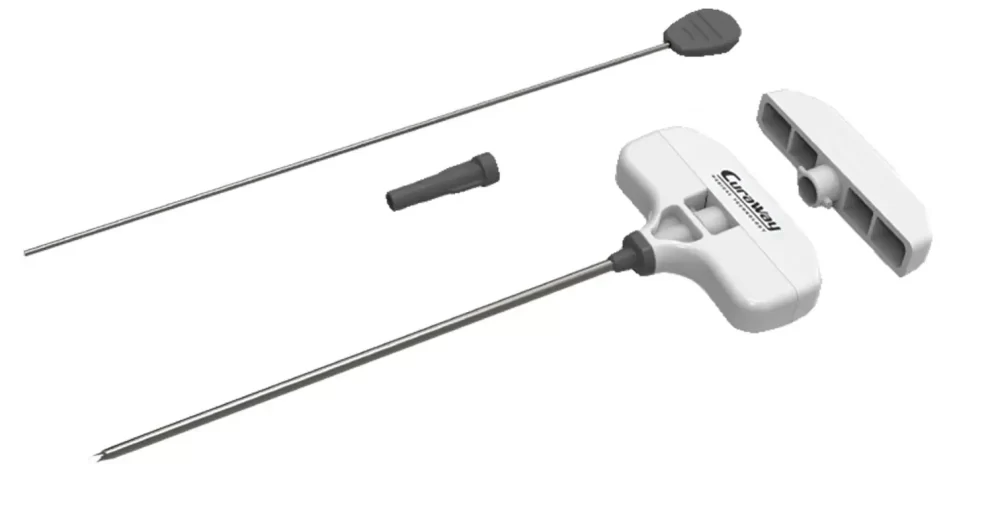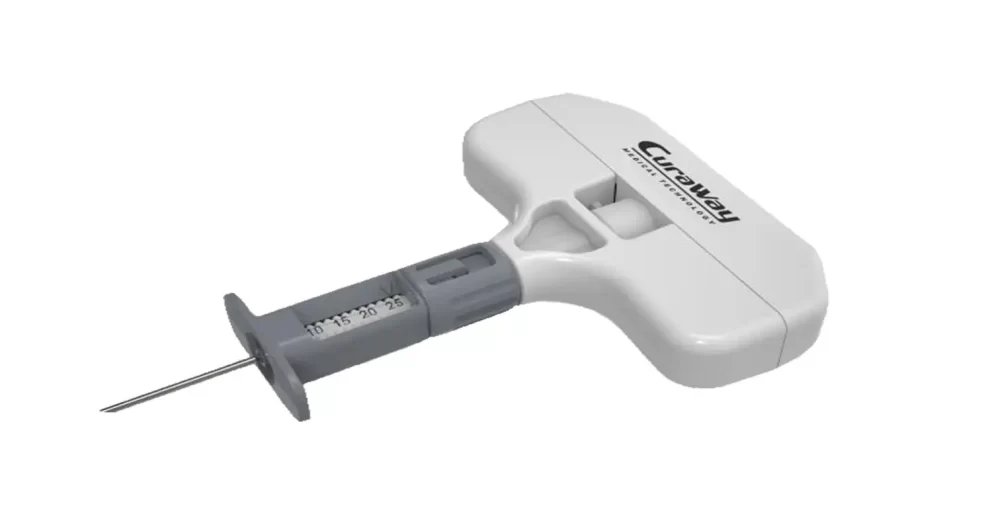Bone Marrow Biopsy Needle: A Critical Tool in Modern Hematology
Bone marrow biopsy is a vital diagnostic procedure used to investigate a range of serious hematological and oncological conditions. At the heart of this procedure lies a precision instrument — the bone marrow biopsy needle. Though small in size, it plays a monumental role in detecting diseases, guiding treatments, and saving lives.
In this blog post, we will delve deep into the world of bone marrow biopsy needles — what they are, how they work, types, procedures, safety aspects, and how to choose the right needle. Whether you’re a medical professional, a medical supplier, or a curious reader, this comprehensive guide will give you a detailed overview of the device that quietly powers hematological diagnostics.
What is a Bone Marrow Biopsy Needle?
A bone marrow biopsy needle is a specialized medical instrument designed to extract bone marrow tissue from within a bone. Typically, the posterior iliac crest (back of the pelvic bone) is used for the biopsy due to its accessibility and safety profile. The needle is engineered to penetrate the hard outer surface of the bone and collect a core sample of bone marrow tissue for pathological examination.
Bone marrow biopsy is distinct from bone marrow aspiration. While aspiration draws out the liquid portion of the marrow, biopsy retrieves a solid core, giving a more detailed picture of bone marrow architecture, cellularity, and abnormalities.
Why is Bone Marrow Biopsy Performed?
Bone marrow biopsies are often performed to diagnose or monitor:
- Leukemia
- Lymphoma
- Multiple myeloma
- Myelodysplastic syndromes
- Aplastic anemia
- Bone marrow metastasis from solid tumors
- Unexplained cytopenias (low blood counts)
- Fever of unknown origin (in some cases)
The biopsy provides invaluable information about the production of blood cells, presence of abnormal cells, or infiltration of marrow by cancer or infections.
Key Features of a Bone Marrow Biopsy Needle
A high-quality bone marrow biopsy needle must include several essential design features to ensure accuracy, patient comfort, and safety:
- Sharp Trocar Tip: To pierce the cortical bone smoothly.
- Ergonomic Handle: For a firm grip and controlled force during penetration.
- Depth Markers: To guide the clinician on how deep to insert.
- Specimen Notch or Trap: To retain the biopsy sample securely.
- Luer Lock Fitting: Sometimes integrated for aspiration-compatible needles.
- Ejector Stylet: To remove the specimen without damaging its structure.
Most biopsy needles are single-use, sterile, and made of stainless steel. They come in various sizes, with the most common being 8G to 13G in gauge and 100mm to 150mm in length.
Bone Marrow Biopsy Procedure: Step-by-Step
Understanding how a bone marrow biopsy needle is used in a clinical setting is crucial for appreciating its importance.
1. Patient Preparation
- Informed consent is obtained.
- Local anesthesia is administered.
- The patient is positioned (typically lying on their side or stomach).
2. Skin Preparation
The area over the iliac crest is disinfected and draped in a sterile manner.
3. Insertion
- The biopsy needle is inserted through the skin and subcutaneous tissue.
- With controlled pressure and a twisting motion, the needle enters the bone.
- Once it reaches the marrow cavity, the stylet is removed.
4. Sample Collection
- The clinician advances the needle 1-2 cm to extract a core sample.
- The needle is withdrawn, and the sample is pushed out using an ejector.
5. Post-Procedure Care
- The area is cleaned and bandaged.
- The patient is monitored for pain or complications.
The entire procedure usually takes 15–30 minutes. Most patients tolerate it well with minimal discomfort.
Safety, Risks, and Complications
While generally safe, the procedure using a bone marrow biopsy needle can occasionally lead to:
- Local pain or discomfort
- Bleeding or hematoma
- Infection
- Needle breakage (rare)
- Nerve injury (very rare)
Proper technique, patient screening (e.g., platelet count), and use of high-quality biopsy needles can significantly reduce these risks.
Innovations in Bone Marrow Biopsy Needle Design
Modern biopsy needles are designed with both patient safety and clinician convenience in mind. Innovations include:
- Echo-Echo Compatible Needles: For image-guided biopsies.
- Color-coded Handles: For easy identification of needle gauge.
- Safety Lock Mechanisms: To prevent needle stick injuries.
- Transparent Hubs: Allow visual confirmation of aspiration success.
Several manufacturers are also working on automated biopsy systems that use motorized needle insertion to reduce user error and improve patient comfort.
Choosing the Right Bone Marrow Biopsy Needle
When selecting a biopsy needle for your clinic or hospital, consider the following:
1. Clinical Indication
If both aspiration and biopsy are needed, choose a needle compatible with both.
2. Patient Factors
For obese patients or those with fragile bones, select a longer and sturdier needle.
3. Physician Preference
Some clinicians prefer traditional Jamshidi needles, while others opt for advanced systems with locking or snare mechanisms.
4. Regulatory Compliance
Ensure the needle is US FDA, CE, or ISO certified to meet international safety standards.
5. Cost and Availability
For healthcare providers in developing countries, balancing quality with affordability is crucial. Reputable suppliers in Bangladesh, India, or China offer cost-effective, quality-certified options.
Leading Manufacturers and Suppliers
International manufacturers produce bone marrow biopsy needles available in Bangladesh:
- CuraWay
When sourcing biopsy needles in Bangladesh or South Asia, it’s advisable to partner with authorized distributors like Unique Medi Trade or Praxis HealthCare, who provide US FDA and CE-certified instruments along with clinical support and after-sales service.
Sterility and Packaging
Bone marrow biopsy needles are supplied in:
-
Individually sterile-packed units
-
Blister packs
-
Hard-plastic protective containers
They are meant for single-use only to avoid the risk of cross-contamination or infection. Always check the expiry date, lot number, and manufacturer’s seal before use.
Cost of Bone Marrow Biopsy Needles
The price varies depending on brand, gauge, length, and features. On average:
- Premium or advanced needles: $40–$100 USD per unit
Bulk purchasing and long-term supply contracts can significantly reduce costs for hospitals and diagnostic centers.
Tips for Medical Professionals
Here are a few tips for physicians and pathologists who regularly perform bone marrow biopsies:
- Choose a comfortable and stable position for the patient.
- Use adequate local anesthesia — it greatly reduces patient anxiety.
- Apply steady, controlled pressure when penetrating the cortical bone.
- Always label the biopsy sample properly to avoid diagnostic errors.
- Communicate clearly with the patient before, during, and after the procedure.
Final Thoughts
The bone marrow biopsy needle is much more than a sharp tool — it is a gateway to life-saving diagnoses. Whether you are detecting leukemia, confirming lymphoma staging, or evaluating anemia, the biopsy needle offers a pathway to clarity and action.
With ongoing innovations in biopsy needle design and increasing awareness of hematological disorders, this small but mighty tool will continue to be at the frontline of diagnostics for years to come. Healthcare providers, clinicians, and suppliers must stay updated with the best biopsy needle technologies to ensure accurate, safe, and efficient diagnostics for every patient.
Frequently Asked Questions (FAQs)
1. Is bone marrow biopsy painful?
Mild discomfort is common, but the procedure is generally well-tolerated with local anesthesia.
2. What is the most commonly used bone marrow biopsy needle?
The CuraWay bone marrow biopsy Needle is the most widely used globally.
3. Can the needle be reused?
No. Bone marrow biopsy needles are strictly single-use sterile instruments.
4. How long does the biopsy take?
Usually 15–30 minutes, including preparation and sample collection.
5. Where can I buy bone marrow biopsy needles in Bangladesh?
Authorized suppliers like Unique Medi Trade offer certified, affordable biopsy needles.
Leading Manufacturers and Exclusive Distributor in Bangladesh
Globally renowned manufacturers produce bone marrow biopsy needles :
- Manufacturers = CuraWay
-
Distributor : Unique Medi Trade
In Bangladesh, Unique Medi Trade is the exclusive distributor of premium-quality bone marrow biopsy needles, including models that are US FDA, CE, and ISO 13485 certified. The company has built a strong reputation for delivering high-quality medical equipment and offering exceptional clinical support, timely delivery, and professional after-sales service.
Whether you’re a hospital, diagnostic lab, or medical procurement officer, sourcing bone marrow biopsy needles from Unique Medi Trade ensures:
-
Authentic and original devices
-
Sterile, single-use packaging
-
Affordable pricing for bulk orders
-
Nationwide delivery and support
-
Compliance with international safety and performance standards
As the sole distributor, Unique Medi Trade ensures that no counterfeit or substandard versions enter the market, upholding both quality and patient safety.
📞 Contact Unique Medi Trade
Looking to purchase high-quality bone marrow biopsy needles from a trusted and certified source in Bangladesh?
Unique Medi Trade is the exclusive distributor of premium-grade bone marrow biopsy needles and a wide range of other advanced medical equipment used in diagnostics, oncology, hematology, and interventional procedures.
📍 Office Address:
Unique Medi Trade
West Kafrul, Begum Rokeya Sharani, Dhaka 1207
📱 Phone:
+880 1717811312 (Call/WhatsApp)
📧 Email:
🌐 Website:
🕐 Office Hours:
Saturday – Thursday: 9:00 AM – 10:00 PM
Friday: Closed (Emergency Support Available)



